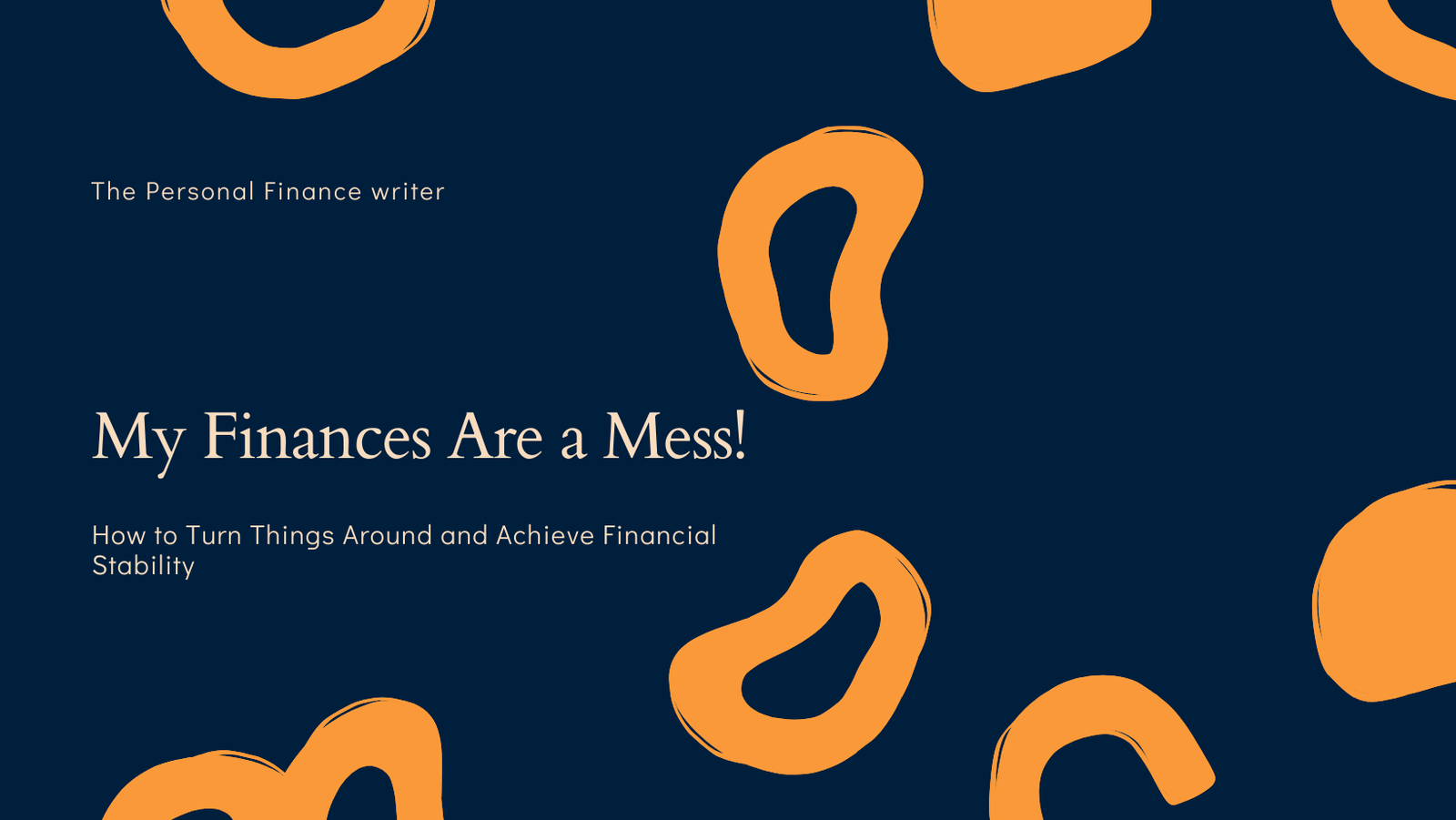Table of Contents
Introduction
Are your finances in disarray and often asked yourself this question “Why My Finances Are a Mess“?. Do you feel overwhelmed by debt, expenses, and financial confusion? You’re not alone. Many people face challenges with their finances at some point in life. The good news is that with the right strategies and mindset, you can turn things around and achieve financial stability. In this guide, we’ll explore practical steps to tackle your financial mess and set yourself on the path to financial success.
Why My Finances Are a Mess ?
First, it’s essential to understand the root causes of your financial challenges. You can start by identifying areas where you’re struggling, such as excessive debt, lack of savings, overspending, or irregular income. Regularly assess your financial habits, mindset, and behaviors that may contribute to your financial mess. For example, Sarah realizes that her financial mess is primarily due to credit card debt, impulsive spending, and not having a budget in place. She acknowledges the need to change her financial habits and seek solutions.
Creating a Budget and Tracking Expenses
One of the most effective ways to address the question,Why my finances are a mess ? is by creating a budget. Start by listing your income sources and categorizing expenses into essential (such as housing, utilities, groceries) and non-essential (entertainment, dining out). Use budgeting apps or spreadsheets to track expenses and monitor spending patterns.
An effective way of creating a budget is the following the 50/30/20 rule. It is a budgeting guideline that allocates your after-tax income into three categories: (50%)needs, (30%) wants, and (20%) savings/investments
For example, John creates a monthly budget using a budgeting app. He allocates a portion of his income to essentials and sets limits for discretionary spending to avoid overspending.
Tackling Debt Strategically
Debt can be a major contributor to financial stress. Prioritize paying off high-interest debts first, such as credit card balances or personal loans. Consolidate your debt or try negotiating better terms or interest rates with your creditors. You can sometime consolidate your credit card debt into a lower-interest personal loan and create a debt repayment plan and allocates extra funds from your budget to accelerate debt payoff.
Building an Emergency Fund
Financial emergencies can arise unexpectedly, leading to further stress and debt. Set aside a regular amount of your money to begin creating an emergency fund. Make sure your emergency fund is large enough to cover three to six months’ worth of living expenditures. You can start building an emergency fund by opening a high-yield savings account and automate monthly deposits into your emergency fund. This way you will be more financially secure knowing that you have a buffer for any unexpected expenses.
Seeking Professional Help
Don’t hesitate to seek help from financial advisors, counselors, or coaches if you’re struggling to manage your finances alone. They can provide you a personalized guidance, strategies, and support to navigate your financial challenges effectively.
For example: Alex consults with a financial advisor to create a comprehensive financial plan. The advisor helps him prioritize goals, manage investments, and develop a long-term financial strategy.
Changing Financial Mindset and Habits
Achieving financial stability requires a shift in mindset and habits. Adopt a mindset of financial responsibility, delayed gratification, and long-term planning. Cultivate healthy financial habits such as regular saving, budgeting, investing, and avoiding impulsive spending. You should practice mindful spending and adopts a “needs vs. wants” approach to expenses. Also focusing on a long-term financial goals like homeownership and retirement savings can help build good financial habits in the long run.
Conclusion
While facing a financial mess can be daunting, it’s essential to take proactive steps to address the issues and regain control of your finances. By creating a budget, tackling debt, building savings, seeking professional guidance, and adopting healthy financial habits, you can transform your financial situation and achieve stability.
Remember, every positive financial decision you make has to start with a question, questions like Why My Finances Are a Mess? By first asking yourself this question, you will hold yourself accountable and only then you can take action on above steps that can brings you closer to financial freedom and peace of mind.
